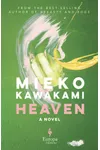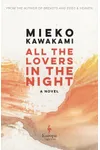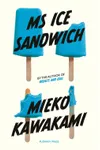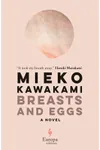Picture a Japanese storyteller who turned the literary world upside down with her raw, poetic take on womanhood—meet Mieko Kawakami! Born in Osaka in 1976, this former singer and poet crafts stories that dig deep into the human experience, blending gritty realism with lyrical beauty. Her breakout novel, Breasts and Eggs, took the globe by storm, earning a spot on TIME’s Best 10 Books of 2020 and cementing her as a voice for modern feminism.
Kawakami’s work isn’t just about storytelling; it’s about shaking up Japan’s male-dominated literary scene with unflinching honesty. From poverty to body autonomy, her novels tackle big questions with a playful yet piercing tone, making readers laugh, cry, and think all at once.
The Making of Mieko Kawakami
Born to a working-class family in Osaka, Mieko Kawakami grew up in a world far from literary salons. Her father was often absent, and money was tight, shaping her sharp eye for class struggles. Before penning novels, she was a singer-songwriter, releasing three albums and blogging her way to a massive online following. Her blog’s punchy Osaka dialect caught eyes, and by 2006, she debuted as a poet with Sentan de, sasuwa sasareruwa soraeewa, winning the Nakahara Chūya Prize. A year later, her novella My Ego, My Teeth, and the World snagged the Tsubouchi Shoyo Prize, marking her as a literary force.
Mieko Kawakami’s Unforgettable Stories
Kawakami’s writing is a vibrant mix of Osaka’s street-smart slang, poetic flair, and raw emotion, inspired by the likes of Lydia Davis and James Joyce. Her breakout, Breasts and Eggs (2008, expanded 2019), follows sisters Natsuko and Makiko navigating poverty, beauty standards, and reproductive choices. Its bold take on female bodies won the Akutagawa Prize, though it ruffled feathers among traditionalists like Tokyo’s then-governor Shintaro Ishihara.
Heaven (2009, translated 2021) dives into the psyche of a bullied teen, exploring violence and resilience with haunting clarity. It landed on TIME’s Best Books of 2021 and was shortlisted for the 2022 International Booker Prize. All the Lovers in the Night (2013, translated 2022) traces a lonely proofreader’s journey through isolation and self-discovery, earning a National Book Critics Circle Award nomination. Her short story collection, Dreams of Love, etc. (2013), nabbed the Tanizaki Prize for its experimental, tender tales.
Kawakami’s style—think vivid imagery and philosophical musings wrapped in conversational wit—makes her stories feel like chats with a wise friend. She tackles ethical dilemmas, from bullying to motherhood, with a feminist lens that’s both universal and deeply Japanese.
Why Mieko Kawakami Matters
Kawakami’s impact goes beyond awards. She’s a trailblazer for women in Japanese literature, challenging patriarchal norms and giving voice to the marginalized. Her global reach, with translations in over 30 languages, has sparked conversations about gender, class, and identity worldwide. Fans like Haruki Murakami praise her “ceaselessly growing” talent, while her bold interviews—like calling out Murakami’s sexism—show her fearless spirit. Kawakami’s stories don’t just entertain; they push readers to question society’s rules and embrace their own truths.
About Mieko Kawakami
- Born: August 29, 1976, Osaka, Japan
- Key Works: Breasts and Eggs, Heaven, All the Lovers in the Night
- Awards: Akutagawa Prize (2008), Tanizaki Prize (2013), Murasaki Shikibu Prize
- Fun Fact: She’s married to author Kazushige Abe and has a son.
Snag Breasts and Eggs or Heaven and dive into Mieko Kawakami’s poetic, provocative world—you won’t look at life the same way again!



